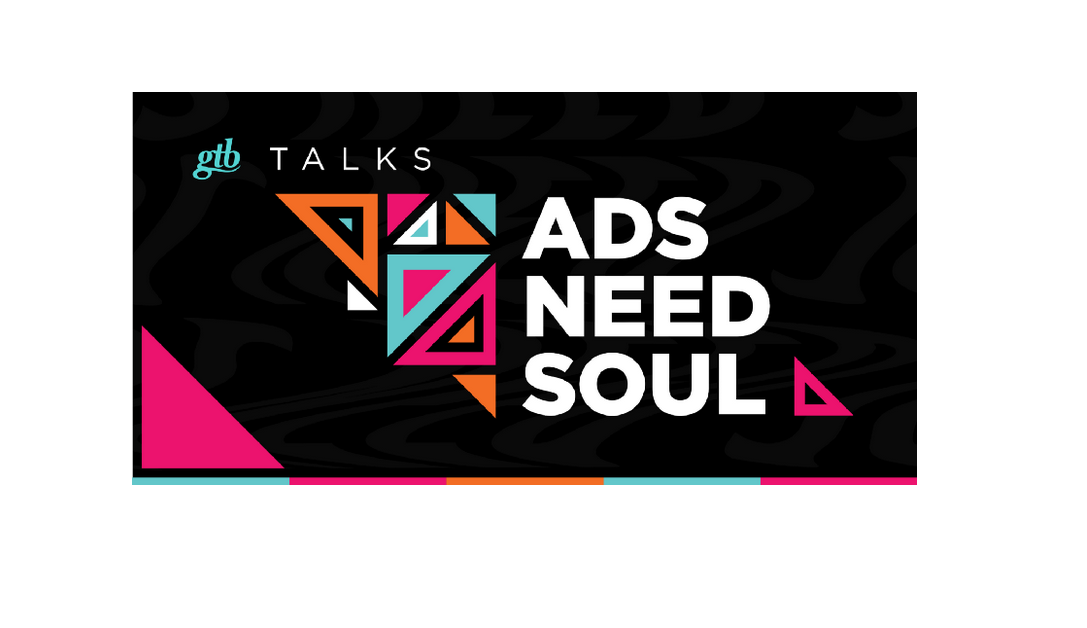Ads Need Soul; Here's How to Get There

Last month, I joined ad industry luminaries Deadra Rahaman, Walter T Geer III and Mychael Metcalf along with scholars Jason P. Chambers, PhD; Lynita Taylor, MBA, and Teresa Mastin for the "Ads Need Soul" conference hosted by GTB. The entire three-hour event is available online and you can watch my 15-minute talk below. This column summarizes what I think the advertising industry should STOP and DO if they're serious about dismantling inequality.
STOP hiring friends and relatives who skip to the front of the line because of who, not what, they know. Whether client side or agency side, they're known as "must-hires," a euphemism for white nepotism. This kind of opportunity hoarding is an ugly remnant of the Mad Men era and should be chucked into the dustbin of history. DO pay your interns and raise your entry level wages to attract more than just rich white kids to the business. STOP letting teams hire at the entry-level. DO give HR more power to determine qualifications and challenge teams to work with people who are different from them and contribute a wider range of backgrounds and experiences.
STOP hiring diversity officers. A growing body of evidence suggests that the diversity industrial complex has lost its way and is even enabling systemic racism. DO read Pamela Newkirk's book Diversity, Inc.: The Failed Promise of a Billion-Dollar Business and follow the lead of Coca-Cola's highly successful diversity transformation by using external monitoring to build trust with both your brands and the public. STOP pouring money into anti-bias training. Newkirk cites research showing that the results are mixed and often backfire. DO read and implement the 4A's Equity & Inclusion Manifesto. It was created through a democratic "congressional" process that included the participation of over 300 stakeholders and is full of great ideas.
STOP expecting the advertising industry to hold itself accountable through self-regulation. They've been failing at this for decades. Instead, DO report agency-level diversity data on an annual basis so consumers and advertisers can adjust accordingly. Insist that the 4A's make such public reporting an industry norm by requiring it of all its members. Anything less means they're just not serious about fixing a problem that has festered under their watch.
STOP pretending that substantive change will happen without baselines, targets, incentives and, yes, penalties. The ghosts of Mad Men continue to haunt Madison Avenue decade after decade because, for far too long, the symbolic expression of good intentions with no external mechanism for measurement or material consequences for failure has been allowed to count as "progress." Advertising's unique ability to persuade by creating the appearance of change has helped agencies conceal and protect white gains and Black losses behind the scenes for generations. And, when it comes to feigning reform while continuing to marginalize Black lives and maintain white power, advertising has a long record as a repeat offender.
DO listen to Black women like Alicia Garza. Speaking at last year's ADCOLOR conference, Garza addressed the limits of representation, symbols without substance, the need for Black vision and strategy, and why we need not just values, but rules, consequences, and, yes, STOP signs:
"Sure, we might be able to say there are black people in a C-suite, but the positions that we often hold are those of diversity consultants, right? That has become kind of a new trend across corporate America. You know, we don't want to get slammed for not having Black representation and so we're going to make sure that we have a position, often filled by a Black person, often filled by a Black woman, that's going to look at diversity and inclusion in our company. And we're going to have a lot of great conversations about diversity. We're going to make sure that we do things like celebrate Black History Month and, you know, maybe we'll even do, you know, a video chat about Fannie Lou Hamer.
"But, at the end of the day, representation is not everything, and it's not enough. That is a clear example of how we have symbol without substance. What we need to be doing is making sure that our companies are led by the vision and strategy of Black people who, frankly, are bringing the experience of what it means for Black people to be excluded, right? Not just from the staffing of a company, but for the vision and the strategy. And we need to make sure that that space is wide open. We need to also ensure that we are paying Black people equitably in relationship to their peers inside of a company.
"Values are important, but also rules are important and rules are what shape our everyday lives. If we only talk about people's personalities and right and wrong and good and bad people, then we are only going to get the kinds of interpersonal solutions that rely on people's goodwill, as opposed to accountability to each other. When you're driving, you stop at a stop sign. That is a rule that then has a consequence if you break it. And you can be a really nice person and run a stop sign, but if you run a stop sign, you are going to get a ticket. And who would be displaced, right? And what would be the impact of that? I think those are uncomfortable conversations that we need to have in order for that reckoning to start to become complete."
Click the social buttons to share this story with colleagues and friends.
The opinions expressed here are the author's views and do not necessarily represent the views of MediaVillage.com/MyersBizNet.


